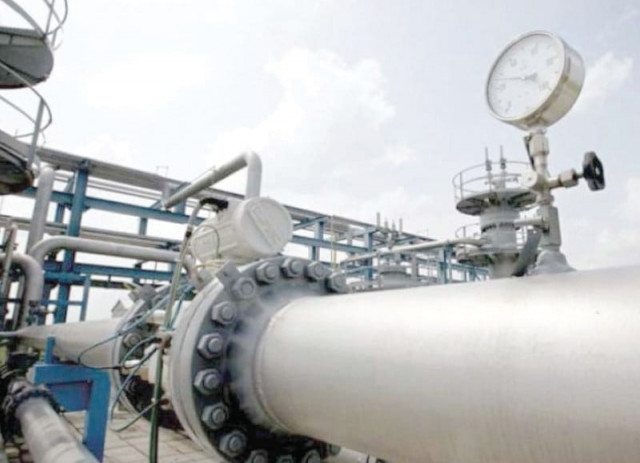Govt restructures gas priority for industrial growth
Residents, industries share first spot, power and fertiliser sectors in second category

The caretaker government has decided to change the gas priority order by placing the process industry at the top along with domestic consumers. It has also changed the priority order of the fertiliser sector by placing it in the second category along with the power sector.
Earlier, the fertiliser industry was placed in the third category. The export-oriented industry was placed in the second category in the old policy. However, the caretaker government has removed it from the second category and placed it in the fertiliser sector.
In the first category, the government had added domestic and commercial consumers, including tandoor and industry processing only. The power and fertiliser sectors have been placed in the second category, industry (captive power) in the third, cement in the fourth, and CNG in the fifth category.
Sources said that the issue was taken up before the prime minister. The Petroleum division had submitted a plan regarding the proposed revision in the gas priority order that was okayed. The issue was already taken up before the economic coordination committee (ECC) to change the gas priority order.
The members of the economic decision-making body had suggested amendments to the gas supply priority order with the objective of according top priority to the industry, which will help boost the industrialisation process in the country. Its members had argued that the merit order for gas supply had been distorted, as the domestic sector got first priority with no value addition. They underscored the need to amend the economic merit order by placing industries at the top, as they make value addition and bring revenue for the country.
It was pointed out that the government had already decided on the gas load management plan, wherein the provision of gas to domestic consumers would be ensured for eight hours a day during winter months. However, some policymakers warned against relegating residential consumers in the priority order cautioning against further reductions of gas supply.
Domestic consumers are given preference in gas supply owing to the implementation of parliamentarians’ schemes that are mainly undertaken for political considerations to win over voters. Such schemes are approved by each government to provide gas to villages, though the production of indigenous gas has not increased since the year 2000.
Read Gas price hike for fertiliser plants sought
Earlier, parliamentarians had been focusing on electricity supply projects, but its network has now expanded to the maximum level. Pakistan’s gas production is depleting by 9% every year, and the country has become dependent on imported gas for the past many years. With the execution of lawmakers’ projects, the gas pipeline network is expanding, while on the other hand, prices are also going up. Gas prices are linked with a guaranteed rate of return on assets. Therefore, the initiation of new schemes promises more incentives to the public gas utilities on account of an increase in prices. There are 72% retail consumers of gas, whereas 28% are bulk consumers like the power sector, industry, captive plants, and CNG stations.
In 2005, bulk consumers accounted for 70% of the total, whereas domestic consumers comprised 30%. However, the ratio has reversed with domestic consumers rising and bulk consumers dropping drastically.
The reversal in the priority order has also led to an increase in gas losses and theft. In 2013, the average losses of gas utilities stood at 10%, which has now gone up to an average of 12%. Similarly, in the jurisdiction of Sui Southern Gas Company (SSGC), Balochistan has contributed 40% to the overall gas losses.
Industry officials say that mismanagement in the priority order has made the country a net importer of LNG, which has significantly added to circular debt. Earlier, the power sector was a key contributor to the debt pile.
Published in The Express Tribune, February 22nd, 2024.
Like Business on Facebook, follow @TribuneBiz on Twitter to stay informed and join in the conversation.


















COMMENTS
Comments are moderated and generally will be posted if they are on-topic and not abusive.
For more information, please see our Comments FAQ